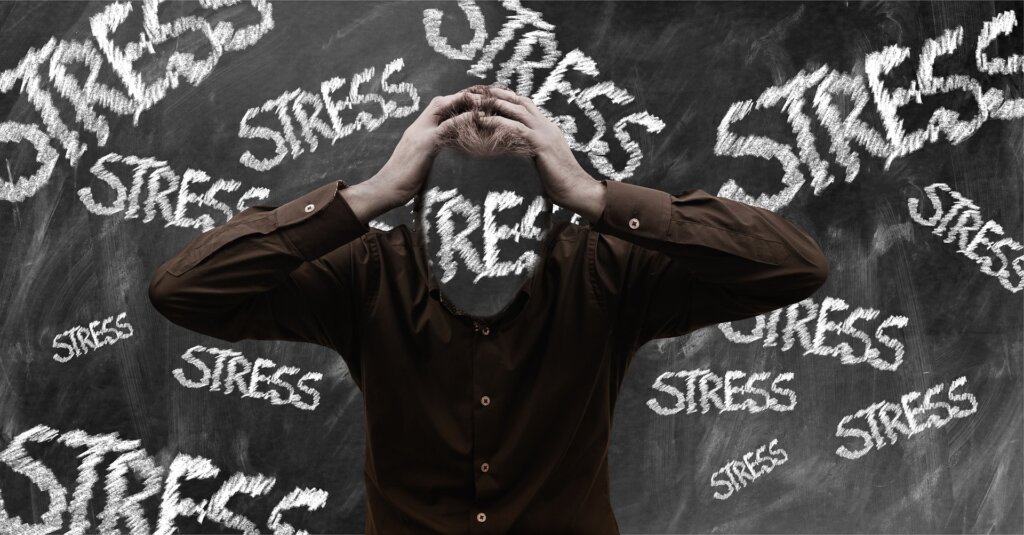“short-term” type of stress that stems from fighting with a loved one, receiving criticism from your boss or having someone break into your house. Fortunately, your body can handle acute stress far better than chronic stress, since it typically goes away fairly quickly.
While acute is known as short-term , chronic stress is defined as “long-term” anxiety.

This is stress that stems from working in a toxic environment every day or fighting with your spouse constantly. This is the type of stress that seems never-ending and can negatively impact your health.
Symptoms and impacts of stress
People may experience anxiety, depression, sadness, anger, irritability, social isolation, headache, menstrual problems, abdominal pain, back pain and difficulty concentrating.
Chronic tension causes the body to stay in a constant state of alertness, despite being in no danger. Extensive studies have provided evidence of the association between “chronic stressors and physical health outcomes” Take caregiving as an example. A review of 37 studies has suggested that dementia caregivers subjected to chronic tension are more susceptible to diseases. Although the connection between stress and health requires continuous research, the existing findings have suggested the potential link between the two.

Brain health on tension
A primary target of stress is the brain. When exposed to stress, it serves as the centre to interpret the stressors and determine the appropriate behavioural and psychological responses. Therefore, exposure to chronic stress will have a direct impact on brain function. For instance, chronic stress inhibits neuron growth inside the hippocampus and prefrontal cortex. The neuronal atrophy in these two structures can lead to hypertrophy in amygdala, responsible for anxiety and stress. In turn, this will lead to an increase of fear and aggression and impairment in learning ability. Memory and decision-making can also be negatively affected. Additionally, chronic stress can suppresses neural pathways active in cognition and decision-making, speeding up aging. Also, being chronically stressed worsens the damage caused by a stroke and can lead to sleep disorders due to the overexposure of cortisol.

Treatment
While chronic stress can negatively impact your physical health and emotional well-being, there are treatment options to aid in your healing and recovery. When seeking treatment, Dr. Emily Stone, a licensed marriage and family therapist in Austin, Texas, emphasizes the importance of taking a holistic approach, noting that “all parts of us need nurturing in order to heal.”

#1.Research shows that regular exercise can help keep cortisol levels in check. In fact, even short periods of daily movement can reduce stress levels and improve cognitive function impacted by prolonged tension. For this reason, Dr. Stone urges those struggling with chronic stress to engage in simple movement each day, such as a 20-minute walk.
#2.Leaning on family and friends can help shield you from the negative effects of chronic stress. While some people may shy away from social interaction during high-tension periods, science shows building a reliable support system can boost resilience to stressful triggers.
sleeping
Getting enough sleep is important for both body and mind. Sleep repairs, relaxes and rejuvenates our body and can help reverse the effect of stress.
Good sleep habits (also known as sleep hygiene) include:
- Be consistent. Go to bed at the same time each night and get up at the same time each morning, including on the weekends.
- If possible, make your sleeping area quiet, dark, relaxing and at a comfortable temperature.
- Limit your use of electronic devices, such as TVs, computers and smart phones, before sleeping.
- Avoid large meals, caffeine and alcohol before bedtime.
- Get some exercise. Being physically active during the day can help you fall asleep more easily at night.


